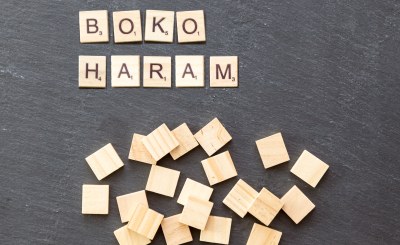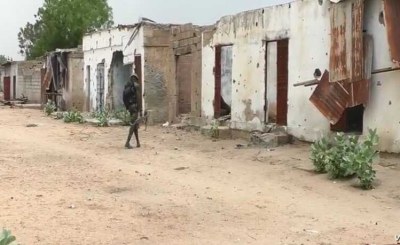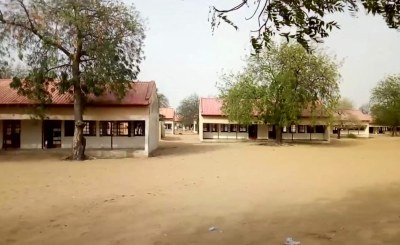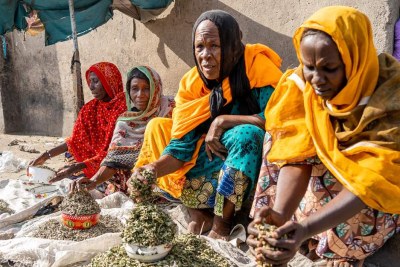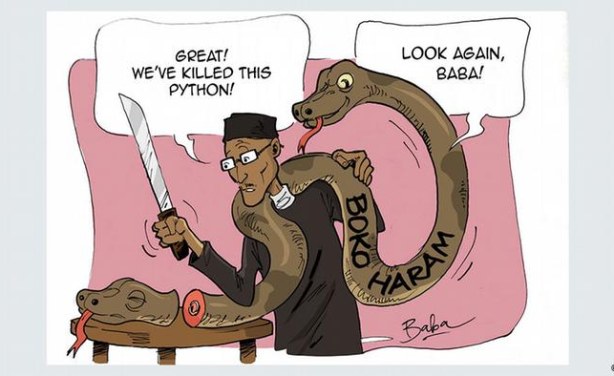-
Nigeria: Boko Haram Leader May Ask for Prisoner Swap, Ransom - Experts
Daily Trust, 16 December 2020
The factional Boko Haram will most likely ask for ransom or prisoner swap to release the hundreds of schoolboys abducted in a school in Katsina State, credible sources and security… Read more »
-
Nigeria: Time to Consider Talks With Boko Haram?
ISS, 16 December 2020
Military interventions have failed to end a violent insurgency and humanitarian crisis in the Lake Chad Basin. The recent brutal murder of over 100 rice farmers by extremists in… Read more »
-
Nigeria: Authorities Urged to Rescue Abducted Children and Ensure Schools Are Made Safer
AI London, 15 December 2020
Responding to Boko Haram's claim of responsibility for the abduction of more than 500 students from Government Science Secondary School in the town of Kankara, Katsina State, Osai… Read more »
-
Nigeria: Education Under Attack in Northern Nigeria - Amnesty
Premium Times, 15 December 2020
"Schools should be places of safety and no child should have to choose between their education and their life." Read more »
-
Niger: UN Concerned for Safety of Refugees in Niger, Following Boko Haram Attack
Vanguard, 16 December 2020
The United Nations voiced grave concern on Tuesday for the safety of thousands of refugees and internally displaced in the wake of a deadly Boko Haram attack on Toumour, a town in… Read more »
-
Nigeria: Nigerian Schoolboys' Kidnapping Claimed By Boko Haram
DW, 15 December 2020
Last week's kidnapping of more than 300 schoolboys in northwestern Nigeria has reportedly been claimed by Boko Haram. The jihadi group was behind the abduction of more than 270… Read more »
-
Nigeria: Pay Ransom, Free Our Children From Bandits, Grieving Parents Beg Govt
Vanguard, 16 December 2020
A grieving parent, Aminu Dayyabu, whose son, Aminu Faruq is among the missing children from Friday's attack on Government Science Senior Secondary School, GSSS, in Kankara, Katsina… Read more »
Time to Consider Talks With Boko Haram?
Military interventions have failed to end a violent insurgency and humanitarian crisis. The crisis has grown from armed conflict in north-east Nigeria and expanded into neighbouring states. Boko Haram, one of the world's deadliest terror groups, has killed more than 30 000 people since 2009 and continues to stage regular attacks across Borno. Millions have been forced from their homes and the option for dialogue may now be required. For dialogue to succeed, governments need to work with civil society to create awareness campaigns that build community support for non-violent approaches to preventing extremism. They need to see communities not as victims but as mediators who understand what gave rise to the insurgency and what might prompt militants to lay down their arms. Communities and local leaders should take the lead, using communication strategies that create the conditions for listening, understanding, and compromise writes Maram Mahdi for the Institute for Security Studies. Boko Haram has claimed responsibility for the abductions of more than 300 children from an all-boys secondary school in Kankara in Katsina State.
InFocus
-
At least 333 schoolboys are reportedly still missing after gunmen attacked an all-boys secondary school in Kankara, in Katsina State. Residents said the gunmen had earlier attacked ... Read more »
-
The elderly have suffered in unique ways from the Boko Haram insurgency that has raged for almost a decade in north east Nigeria, global human rights group, Amnesty International, ... Read more »
